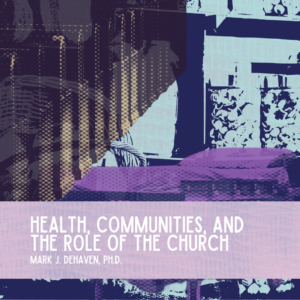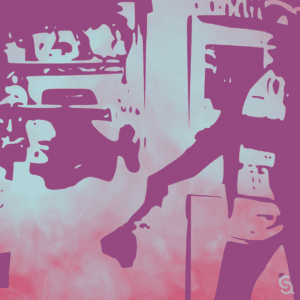 (Editor’s note: This is Part 4 of a 4-part health care series we are running over several months. You can access Part 1 on poverty, social factors, and health inequalities here; Part 2 on how the U.S. health care system discriminates against the poor here; and Part 3 on the growing mental health crisis here.)
(Editor’s note: This is Part 4 of a 4-part health care series we are running over several months. You can access Part 1 on poverty, social factors, and health inequalities here; Part 2 on how the U.S. health care system discriminates against the poor here; and Part 3 on the growing mental health crisis here.)
My heart sank as I considered the devastating health consequences of the White House’s January 20, 2025, order to pause all U.S. foreign aid immediately. Half a million metric tons of surplus U.S. food—already promised to hungry people in Haiti, Bangladesh, and Sudan, packed and loaded, or shipped and awaiting delivery in foreign ports—was halted without warning. Enough food to feed 36 million people was left to rot, with no regard for the starving recipients’ needs (1).
While the global health community watched in horror, the plan’s architect—and richest man in the world—tweeted this cavalier message: “We spent the weekend feeding USAID into the wood chipper. Could gone [sic] to some great parties. Did this instead.” (2)
The callous indifference to the health and well-being of the poor continued throughout the week. Programs, staff, and funding at the Centers for Disease Control and Prevention (CDC) and the National Institutes of Health (NIH) were disrupted or halted. Health data systems used to monitor and prevent disease were taken offline. Medical and health research programs suspected of supporting diversity, equity, or inclusion (DEI) were shut down. An existing presidential order to protect and strengthen Medicaid—which provides health care for low-income families—was revoked.
Then, on February 13, 2025, the White House issued an order establishing the Make America Healthy Again Commission (MAHA). Its purpose? To determine the causes of elevated levels of chronic disease in America. The irony of creating MAHA while dismantling health programs was lost on many.
Why Americans are so unhealthy
MAHA got one thing right: America does have a health crisis. Americans die younger and suffer from higher levels of preventable disease than people in any other wealthy country.
What it got wrong was claiming we don’t know the reasons behind these poor outcomes. In truth, the causes are well documented and have been widely understood among health professionals and policymakers for decades.
One of the clearest ways to understand why Americans are unhealthy is to look at comparable countries where people are healthier. First, the World Health Organization (WHO) and most other wealthy nations recognize health as a human right. The U.S. does not. As of January 20, 2025, the U.S. is one of only two countries—alongside Liechtenstein—that is not a WHO member.
Second, the WHO and many developed countries endorse Universal Health Care (UHC) and Primary Health Care (PHC). UHC ensures that all people, regardless of income, have access to medical care without financial hardship. PHC integrates health care with social services, recognizing that housing, education, and employment significantly affect health outcomes. The U.S. supports neither.
Finally, the U.S. health care delivery system is the most unjust, inequitable, inefficient, and expensive in the world (3). In many European countries, most health care costs go toward direct patient care—especially preventive and episodic care. In the U.S., this is not the case. Health care is a business. Only one-third of U.S. health care spending goes to patient care. The rest supports a sprawling industry, including costly treatments, hospital stays, drugs, devices, physician fees, bloated administrative costs, and outsized executive salaries and bonuses. U.S. insurance companies often pour funds into “denial management”—systems designed to deny care in order to increase profits (4).
Health injustice and the need for Christian compassion
Recent policy decisions threaten the already fragile health of all Americans—especially the marginalized. Because health is a social outcome, people’s ability to live healthy, productive lives is shaped by their social circumstances. Simply put, those who are socially marginalized have fewer opportunities to be healthy. This injustice reflects a deep moral failure and presents a challenge to Christians.
Scripture calls us to “Speak up for those who cannot speak for themselves, for the rights of all who are destitute. Speak up and judge fairly; defend the rights of the poor and needy” (Proverbs 31:8–9).
Health in individuals and congregations
All Christians and congregations are responsible for promoting and maintaining both personal and communal health. As individuals, we are called to honor and glorify God by caring for our bodies, which are “temples of the Holy Spirit” (1 Corinthians 6:19–20). One of the simplest ways to do this is by adopting a healthy lifestyle. On average, people who live healthfully live a decade longer than those who do not (5).
Practicing our faith through worship and fellowship also has health benefits. Dr. Harold Koenig of Duke University has estimated that a lack of religious involvement has a mortality effect equivalent to smoking one pack of cigarettes a day for 40 years (6). Going to church is linked to better well-being, lower rates of depression and anxiety, improved physical health, less use of medical services, stronger immune function, reduced cancer mortality, fewer heart issues, and greater longevity (7).
Congregations also benefit from establishing health ministries—initiatives that increase awareness, provide education, and promote health programming. These programs help members lower cholesterol and blood pressure, manage diabetes and hypertension, lose weight, become more active, and utilize preventive services (8, 9).
Advocating for health justice for our neighbors
More than at any other time in modern history, Christians are needed to protect the health of the vulnerable. Medical care for the marginalized did not exist until Christians recognized the need and responded (10). As John Dickerson writes:
“The seeds that produced the modern hospital and modern medicine were planted by devout Christians who were motivated by Christian beliefs. Many of the best-ranked hospitals today were founded by Christians… enabled by Christian donations and staffed by doctors who trained at Christian universities.” (11)
Today’s health crisis demands Christian compassion. It is rooted in unjust systems and policies that favor the wealthy at the expense of the vulnerable. When Jesus sent out his disciples, he told them to preach the Gospel and “heal the sick” (Luke 9:2). He taught that when we care for the sick, the hungry, and the stranger, we are caring for him (Matthew 25:40).
Devout Christians must take up the cause of health equity. This means making visible the injustices in health care and health outcomes—both within our congregations and in our communities. We can invite neighbors into our health ministries, volunteer in community programs, and partner with local social services. When we help our neighbors, we not only improve their health, but also experience emotional and physical benefits ourselves (12).
I’ve heard it said that “hope is the song in a weary throat.” In today’s crisis, Christians may be the only hope left for many who are weary, struggling, and deprived of a healthy life.
When asked what the Law requires, Jesus responded simply: love God and love your neighbor. “All the Law and the Prophets hang on these two commandments” (Matthew 22:37–40). We are called now—as we were then — to go and do likewise.
 Dr. Mark J. DeHaven is a Distinguished Professor Emeritus of Public Health Sciences at UNC Charlotte. A leader in community medicine, his NIH- and CDC-funded research has improved health outcomes in underserved populations. Previously, he founded community medicine and community health science divisions at UT Southwestern Medical Center at Dallas. Recognized globally, he helped develop sustainable health models in the U.S., Mexico, Peru, and China, bridging research and real-world impact.
Dr. Mark J. DeHaven is a Distinguished Professor Emeritus of Public Health Sciences at UNC Charlotte. A leader in community medicine, his NIH- and CDC-funded research has improved health outcomes in underserved populations. Previously, he founded community medicine and community health science divisions at UT Southwestern Medical Center at Dallas. Recognized globally, he helped develop sustainable health models in the U.S., Mexico, Peru, and China, bridging research and real-world impact.
References
1. Mersie A. Devex Dish: The fate of food aid stranded by USAID’s unraveling. February 12, 2025.
2. Musk E. @elonmusk X post February 3, 2025.
3. Schneider E, Sarnak D, Squires D, Shah A, Doty M. Mirror, mirror 2017: international comparison reflects flaws and opportunities for better U.S. health care. Commonw Fund. 2017;9:1-30.
4. Jones GH, et al. Health care in the United States—basic human right or entitlement? 2015. Annals of Oncology, Volume 26, Issue 10, 2193 – 2195
5. Li Y, et al. Impact of Healthy Lifestyle Factors on Life Expectancies in the US Population. Circulation. 2018 Jul 24;138(4):345-355.
6. McCullough ME, Hoyt WT, Larson DB, Koenig HG, Thoresen C. Religious involvement and mortality: a meta-analytic review. Health Psychol. 2000 May;19(3):211-22.
7. Koenig HG, Vanderweele TJ, & Peteet JR. 2023. Handbook of Religion and Health. Third Ed. Oxford University Press. Pp. 1-1088.
8. DeHaven MJ, Hunter IB, Wilder L, Walton JW, Berry J. Health programs in faith-based organizations: are they effective? Am J Public Health. 2004 Jun;94(6):1030-6.
9. DeHaven MJ, Gimpel NA, Gutierrez D, Kitzman-Carmichael H, Revens K. Designing health care: A community health science solution for reducing health disparities by integrating social determinants and the effects of place. J Eval Clin Pract. 2020 Oct;26(5):1564-1572.
10. Tangelder J. A history of health care . . . and why Christians have done it different. Reformed Perspective. September 21, 2018.
11. Dickerson JS. Christianity and the Origins of Hospitals and Modern Medicine. Christian Research Institute October 18, 2021.
12. Luks A. The Healing Power of Doing Good. 2001. iUniverse.com, Inc. pp. 1- 386.


